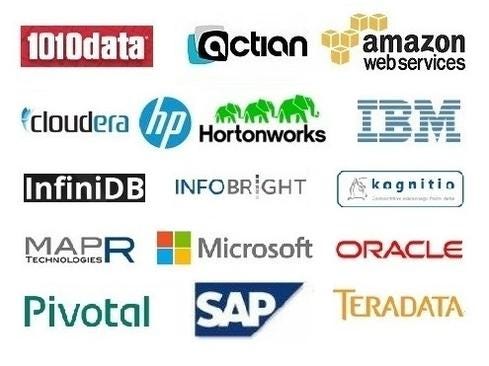DataStax Brings In-Memory To NoSQLDataStax Brings In-Memory To NoSQL
Apache Cassandra vendor DataStax joins Microsoft, Oracle, and others adding in-memory features to their database management systems.


16 Top Big Data Analytics Platforms
16 Top Big Data Analytics Platforms (Click image for larger view and slideshow.)
Web and mobile applications are getting bigger and people are as impatient as ever. These are two factors hastening the use of in-memory technology, and DataStax on Wednesday became the latest database management system (DBMS) vendor to add in-memory processing capabilities.
DataStax Enterprise is a highly scalable DBMS based on open source Apache Cassandra. Its strengths are flexible NoSQL data modeling, multi-data-center support, and linear scalability on clustered commodity hardware. Customers like eBay, Netflix, and others typically run globally distributed deployments at massive scale.
With the DataStax Enterprise 4.0 release announced on Wednesday, the vendor is adding an in-memory option whereby developers can move new or existing database tables into memory to ensure ultra-fast performance. The move comes in response to growing numbers of DataStax customers who have been deploying in-memory products such as Memcached or Redis alongside Cassandra in order to handle low-latency processing needs.
[Want more on recent in-memory moves? Read VoltDB Steps Up In-Memory Analytics.]
"Instead of having to use two different databases, customers tell us they'd like to have it all under one umbrella," said Robin Schumacher, DataStax's VP of products, in an interview with information.
Use cases for the new feature include scenarios in which semi-static data experience frequent overwrites. Examples include sites or apps with top-10 or top-20 lists that are constantly updated, online games with active leader boards, online gambling sites, or online shopping sites with active "like," "want," and "own" listings.
DataStax is following in familiar footsteps, as lots of DBMS vendors are adding in-memory features. Microsoft, for example, has extensively previewed an In-Memory OLTP option (formerly project Hekaton) that will be included in soon-to-be-launched Microsoft SQL Server 2014. And Oracle has announced that it, too, will add an in-memory option for its flagship 12c database. General release of that option isn't expected until early next year.
The NoSQL realm already has in-memory DBMS options such as Aerospike, which is heavily used in online advertising. But Shumacher said DataStax tends to show up in much higher-scale deployments than Aerospike.
In-memory DBMS vendors MemSQL and VoltDB are taking the trend in the other direction, recently adding flash- and disk-based storage options to products that previously did all their processing entirely in memory. The goal here is to add capacity for historical data for long-term analysis. As in the DataStax case, the idea is to covering a broader range of needs with one product.
DataStax's in-memory feature is supported by new management features introduced in OpsCenter 4.1, which was also introduced on Wednesday. This visual monitoring and management console for DataStax Enterprise lets you track and forecast database table size and memory usage over time. Bad things can happen when in-memory tables or DBMSs run out of memory, so OpsCenter lets you set limits and alerts on memory usage. It's also used to specify whether tables are assigned to spinning disks for normal demands, solid state disks for lower latency, or all-in-RAM for fastest-possible retrieval and processing speeds.
Last year Teradata introduced an Intelligent Memory feature that does all this shifting of data to the most appropriate storage speed automatically based on workload demands. You can expect this stort of automation to show up in the next wave of in-memory enhancements.
Engage with Oracle president Mark Hurd, NFL CIO Michelle McKenna-Doyle, General Motors CIO Randy Mott, Box founder Aaron Levie, UPMC CIO Dan Drawbaugh, GE Power CIO Jim Fowler, and other leaders of the Digital Business movement at the information Conference and Elite 100 Awards Ceremony, to be held in conjunction with Interop in Las Vegas, March 31 to April 1, 2014. See the full agenda here.
About the Author
You May Also Like






